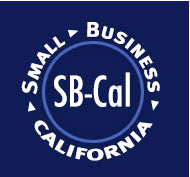Access to capital is a major issue for small business. In a survey Small Business California did in February two thirds of the businesses seeking capital were unable to get it. We know that banks are not the total solution as small businesses especially start ups need equity capital.
The passage of the JOBS bill many see as the solution. There is a lot of confusion on what the JOBS bill does. There are two provisions which we are waiting to see how the SEC interprets. The SEC was supposed to put forth their guidelines within 90 days of passage which would have been early July. To date they have not put these forth and have not put forth a statement when they will be doing so.
According to Lee Petillon board member and SEC attorney the two provision are Section 201 and sections 301-305. Both of these will allow general solicitation but are quite different.
According to Lee:
Section 201 has no investor protections other than it is limited to accredited investors and is unlimited in dollar amount.
Sections 301-305 (the crowfunding provisions) have many investor protections since the offering can be made to non- accredited investors. Some of the investor protections are:
- Issuer is limited to $1 million per year
- Investors can’t invest more than:
- Greater than $2,000 or 5% of the investor’s net worth or income, if his annual income or net worth is less than $100,000; or
10% of the investor’s net worth or income (Congress failed to state whether it is the greater or lesser of), not to exceed a maximum investment of $100,000, if his annual net income or net worth is $100,000 or more.
- The crowdfunding offering must be conducted through an intermediary (a registered broker-dealer or “funding portal” which must be registered with the SEC and an SRO, which is charged with insuring that investors have reviewed educational material about investing risk, and understand such risks;
- Issuers must file with the SEC their business plan, financial statements, disclosure concerning the risks of the investment, and other disclosures established by SEC rulemaking;
- Issuers must file annual reports with the SEC and make annual reports available to shareholders.
- Investors have a private right of action against the issuer for any material misstatements or omissions.
It is not clear what the SEC will do in their rulings. Until that happens we will not know how these investment vehicles will be set up. I am sure there will be both.
I am curious if any of you have any interest in investing money into something like this? For your information an accredited investor is people with a net worth of $1 million[ excluding your primary residents]or individual annual income of $200000 or household income of $300000.
Will any of you be seeking capital once these vehicles are established?
In the passage of the health bill the public option was taken off the table. Do you think now that it should have been included? Do you support single payer which goes beyond the public option?
In our survey a couple of years ago the majority of people were opposed to single payer but there was surprisingly about 40% of the survey respondents supporting it.
Scott Hauge
President
Small Business California
2311 Taraval Street
San Francisco, CA 94116
shauge@cal-insure.com
415-680-2188
Subscribe to:
Post Comments (Atom)



No comments:
Post a Comment